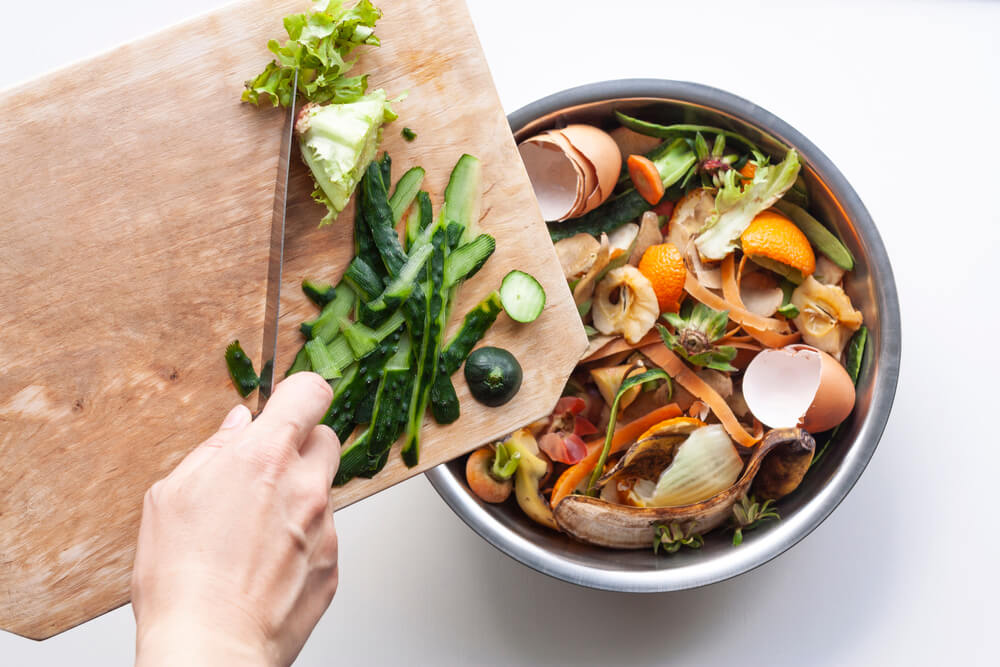Composting is a wonderful way to use food waste and other organic debris to avert these items from the landfill. Many gardeners love to use the rich, dark humus of compost on gardens and flower beds. It’s an eco-friendly way to reduce waste, and it’s cost-saving too, since you can make your own garden soil. But there are a few things about composting for pet owners to keep in mind to keep your pet safe around compost and to compost your pet waste.
Here are Union Lake Veterinary Hospital’s tips on safe composting for pet owners. Let’s get to work on a beautiful lawn and garden (all while protecting our fur friends).
Composting Toxins
Items that go into the compost bin are mostly food stuff and biodegradable or organic matter, like leaves and grass clippings. These items will be of particular interest to a curious pet, especially the food. Since we often compost things that are potentially poisonous to your pet, compost toxicity is a common veterinary emergency.
Some of these toxic items are:
- Onions and garlic
- Spoiled food
- Fruit pits
- Bones
- Coffee grounds
- Corn cobs
- Mold
- Lawn chemicals
- Mushrooms and fungi
These are only a few. This is why any outside compost area or bin should be secure enough that your pet can’t get into it. Choose a bin that has a tight-fitting lid and enclose open compost piles within a fence. Indoor compost bins should be out of reach of our counter surfing pets.
Composting Pet Fur and Other Items
You may be surprised that there are many items from your pet that you can compost. Basically, anything that can break down over time is the raw materials of composting. Just think of all the fur and nail trimmings that you can put to good use. Some pet things that you can pitch into the compost bin include:
- Fur
- Nail trimmings
- Feathers
- Small animal bedding
- Dry pet food
- Chicken manure
- Hay
- Newspaper lining
- Some cat litter
Yes, You Can Even Compost Your Pet’s Waste
Ten million pounds of dog manure end up in our waste water system and landfills. This is an environmental concern and that we can avoid through the use of composting. There are some amazing products that recycle your dog’s doo-doo into fertilizer. You can safely use dog manure on ornamental gardens, lawns, and flowerbeds to enrich the soil. Because of the bacteria in pet waste, though, you can use compost from pet waste on edible fruits, herbs and vegetables. Here are more pet waste composting tips.
Since regular kitchen composters won’t work for pet waste, there are several products that can break down dog waste with ease (and without the stink). Here are some of our favorites.
- beyondGreen Backyard Composter – This composter reliably breaks down pet and food waste in a few weeks.
- Pet Poo Composter – This bin comes with a sturdy fitted lid that’s vermin-proof and odor-free, which is great for everyone (especially when you entertain outdoors).
- Bokashi Pet Cycle Fermentation System – One of the simplest ways to compost organic waste.
- Doggie Dooley In-Ground Dog Waste Composter – This composter is perfect for those who want a discreet compost system with the usual above-ground design.
Composting for Pet Owners Is a Great Option
If you are like the team at ULVH, choosing an environmentally friendly lifestyle is important. Since our pets do create so much trash and waste, why not opt to go green and compost those items? You will do the earth a favor and reap the rewards of a healthy lawn and garden.
Questions about safe composting for pets? Call us! We are here to help.

